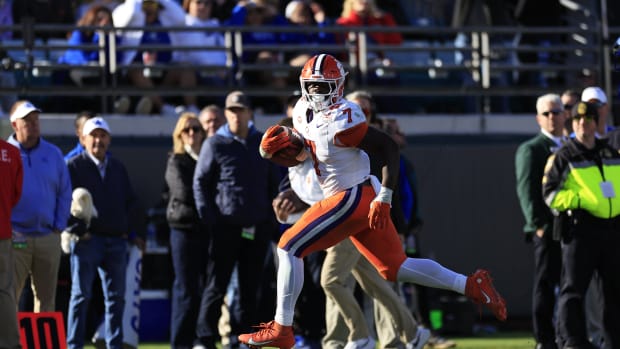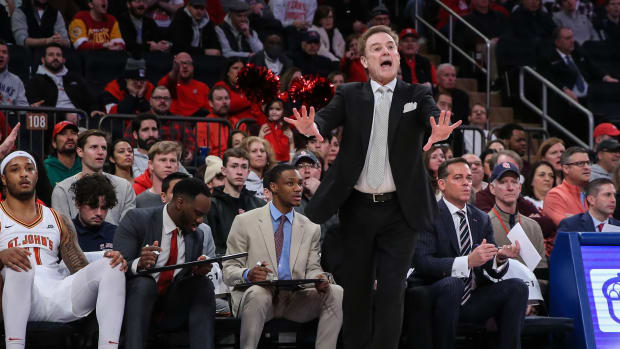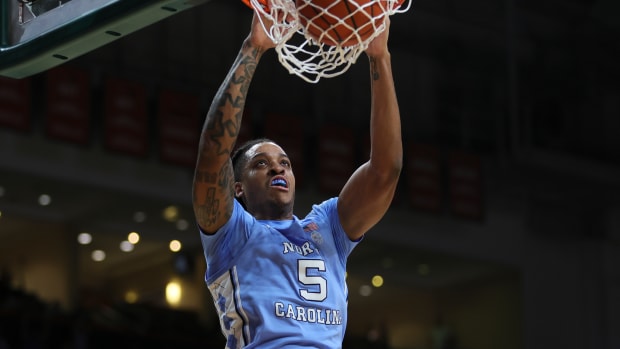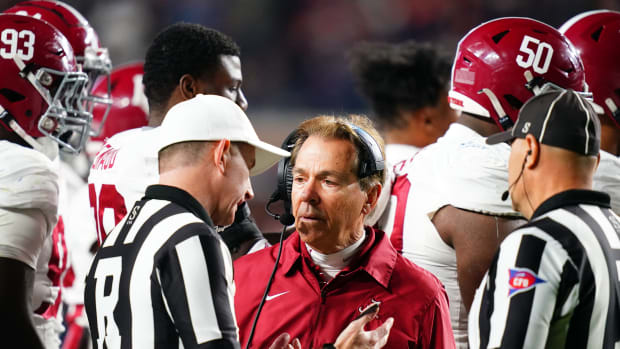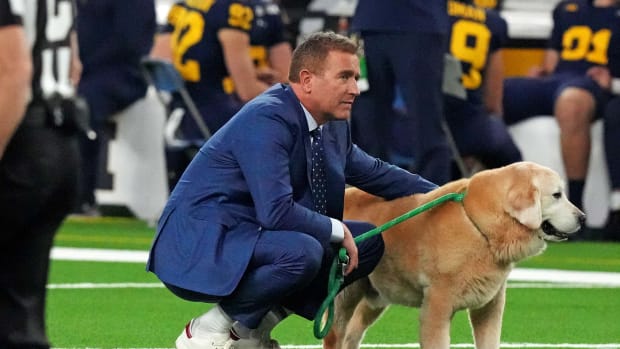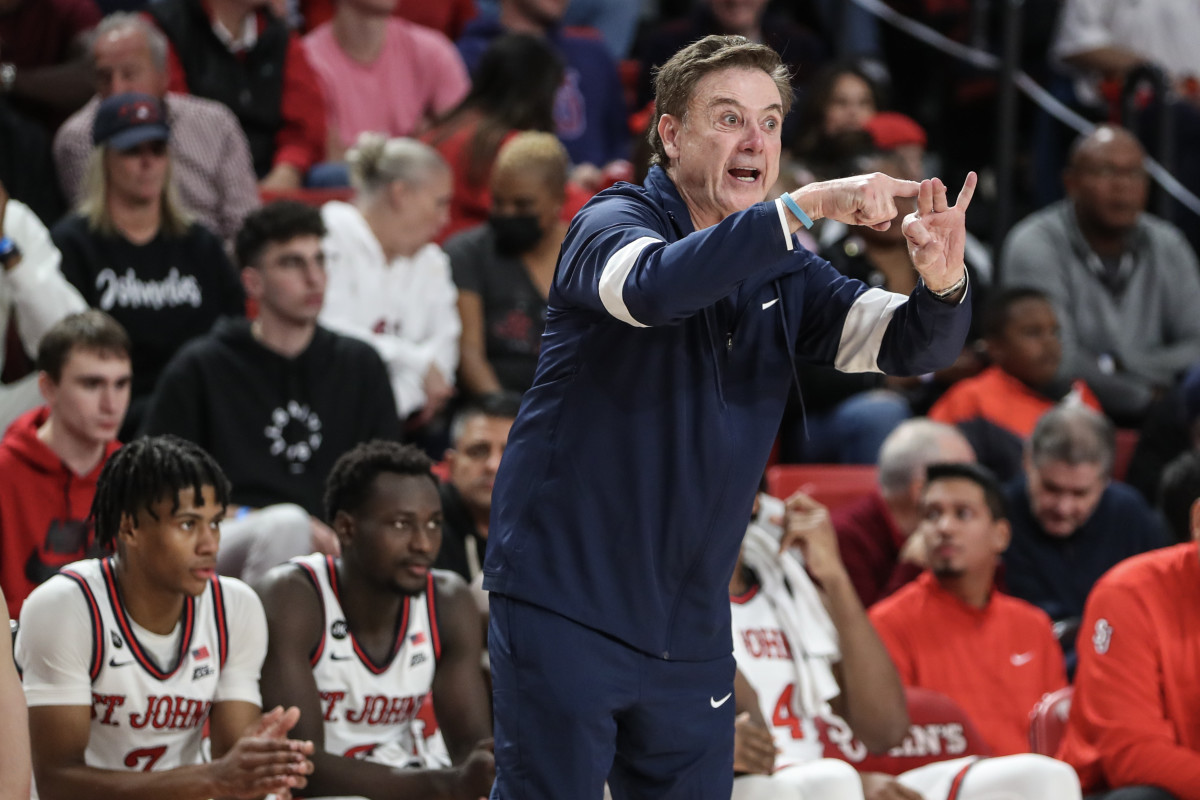
At 71, Rick Pitino Cements Himself as a NIL Maverick
In a recent piece from The Athletic, coaching legend –– and current first-year St. John’s Head Coach –– Rick Pitino discusses his new position and vision for success. Now in his 12th stop as a head coach, Pitino returns to coach in Madison Square Garden 34 years after leading the 88'-89' Knicks to the top seed in the Eastern Conference.
Finding a figure in college sports more divisive than the new St. John's head coach may be impossible. Often outspoken and even more often found in the crosshairs of controversy, one would find it a tall task to find a college hoops fan with a neutral opinion of Pitino.
In keeping with his polarizing personality, Pitino spoke resolutely on the most contentious subject in college sports: Name, Image, and Likeness.
At 71 years old, Pitino has a pioneering outlook on how to take on the new college sports ecosystem. While many coaches, both in basketball and football, have openly criticized NCAA policies regarding NIL, Pitino is excited about coaching in an era where “all the kids are getting paid.” –– a less than subtle insinuation to his previous indictments at the University of Louisville and the unspoken realities of player inducements before NIL.
Pitino has never been afraid to say the quiet part out loud.
Going against the grain of most of his contemporaries, Pitino shows a desire to embrace the new era of college sports rather than fight it. Other coaching legends neighboring his age retired in quick succession as NIL collectives and the transfer portal proved to be institutions in collegiate athletics that are here to stay.
Since the implementation of NIL in 2021, coaching legends Jay Wright, Mike Krzyzewski, Roy Williams, Bob Huggins, and Jim Boeheim have all retired.
While NIL has no direct cause-in-fact relationship to the retirement of these coaches, it is apparent that coaching in this era requires adaptation, something many are unwelcoming to in the later stages of a career.
Other college football and basketball coaches have criticized the professionalization of college athletics. Pitino sees NIL and the transfer portal as a way to instill competitive parity where it previously didn’t exist.
His new facilities lag far behind when comparing St. John’s to its peers in the Big East. Looking more like Fordham than UConn, Pitino is unfazed; to him, locker rooms do not matter anymore. When recruiting a player, the main question is not how nice a school’s workout room is, but rather, what the NIL Collective can offer.
Pitino’s outlook outlines a new factor in the attractiveness of coaching opportunities: the robustness of a NIL program. What used to sell a program to recruits –– outside of illegal inducements –– were the grandiose facilities offered to players. Now, according to Pitino, the legal inducements have changed this calculus.
When courted by St. John’s, promises to revitalize the outdated facilities were made, but Pitino dismissed these talks and opted instead to request support in his NIL operation. Conference affiliation, facilities, and program legacy still matter when evaluating an opportunity at a program as either a recruit or a coach; however, in Pitino’s eyes, NIL potential is rapidly becoming the primary factor.
He has already attended over thirty NIL fundraisers on his quest to bring St. John’s atop the Big East in what he views as the most critical aspect of recruiting.
Soliciting money from friends and connections with little to no affiliation with St. John’s, Pitino has once again revolutionized the NIL game. While most schools and programs focus on boosters, he is leveraging his expansive list of connections from his celebrity status as part of his own NIL experiment.
With a vision of raising north of two million dollars annually for his team, Pitino reasons there is no difference between his team and that of a traditional blue chip program.
He tells The Athletic, “What’s the difference between St. John’s and Kentucky now? Nothing.” –– again, a not-so-subtle nod, this time towards his coaching nemesis, John Calipari, who has remained at Kentucky long after Pitino’s unceremonious departure from Louisville.
Calipari, another outspoken coaching legend, has been pitted against Pitino yet again, this time off the court.
Since the inception of NIL, Calipari has warned of the dangers of a pay-for-play system and has called for regulation of collectives. A battle of personalities and philosophies blossoms: a pro-NIL Pitino battling against a more traditional Calipari, setting up a potential matchup that, like most of their prior meetings, transcends the game of basketball.
The stage is set.
Can a highly skilled coach and fundraiser lift a program with little else to offer to that of a traditional powerhouse?
At the very least, we know that Pitino will remain relentless in his pursuit to prove his NIL experiment can work.

